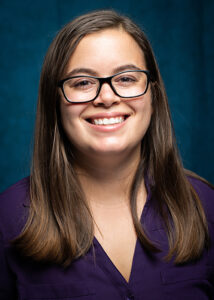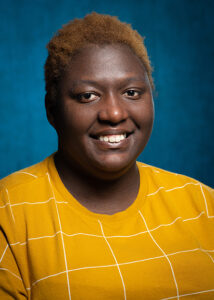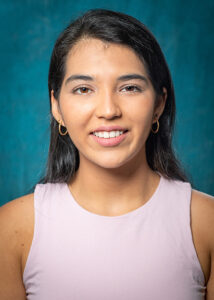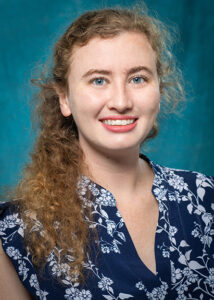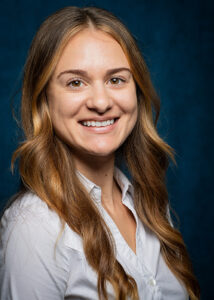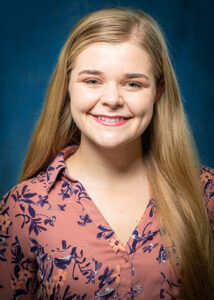While working in hospital emergency rooms in Southwest Florida and participating in community outreach events in Immokalee, FGCU senior Logan Alles has seen firsthand the negative effects of unequal access to healthcare.
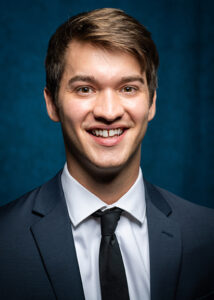
“You care for patients. You want them to have the best outcome,” said the health science major. “Access to healthcare is something I’m really passionate about.”
This fall, Alles has been part of a distinguished cohort of eight FGCU students turning their passions for positive social impacts into greater action through an initiative supported by United Nations Academic Impact, the higher education arm of the United Nations.
Known as The Millennium Fellowship, the leadership development program focuses on what the United Nations calls its 17 “Sustainable Development Goals.” Those include no poverty, zero hunger, quality education, gender equality, climate action and good health and well-being.
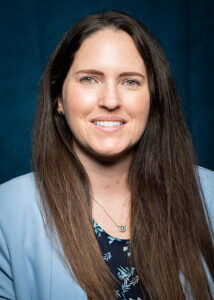
Despite being a first-time applicant to join the Millennium Campus Network, FGCU nevertheless was among only about 6% of campuses selected in 2021. Only about 120 schools were selected from more than 2,200 applicants in 153 nations.
“It’s prestigious,” said Lindsay Rushworth, FGCU coordinator for Academic Mentoring Programs and co-advisor on the Millennium Fellowship, along with psychology Assistant Professor Starlette Sinclair. “We were told it usually takes two or three years to get the designation.”
Eleven students were part of FGCU’s original application group at the start of the year. Three had to withdraw due to delays and other obligations. Still, the eight FGCU Millennium Fellows are among only about 2,000 chosen from more than 25,500 applicants globally.
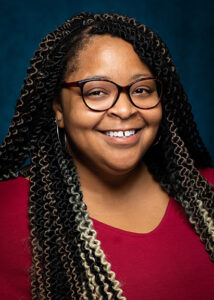
Given the alignment of FGCU’s core focus on sustainability with the U.N.’s 17 sustainable development goals, Rushworth and others weren’t entirely surprised to be selected in year one.
“I think in a lot of ways FGCU is kind of the perfect campus for this because we already are a sustainable campus,” said Rushworth, crediting an array of offices across campus for spearheading or supporting the fellowship.
Those include Global Engagement, from which the Millennium Fellowship operates; the Office of Competitive Fellowships; the Honors College; Service-Learning and Civic Engagement.
“It was very much a group effort,” she said. “We’re already doing these 17 sustainability goals in different ways.”
Alles, president of the FGCU chapter of Global Medical Brigades, is coordinating with Immokalee-based Healthcare Network to set up free monthly medical screenings – and medical referrals, when necessary, with sliding-scale costs – during community events in Immokalee.
The frequency of the events, targeted for spring 2022, will add critical sustainability to annual trips previously made by FGCU’s Honors College on its Immokalee Immersion Trip.
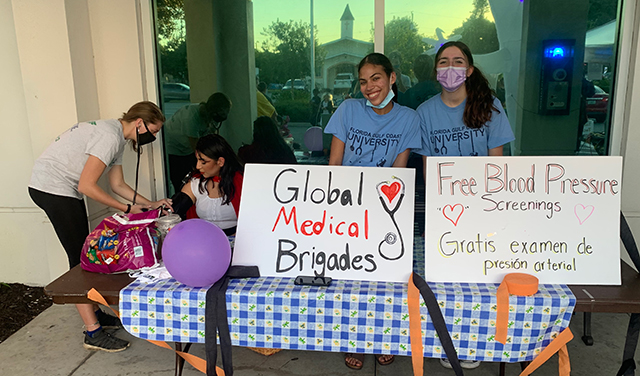
Along with the coordination and delivery of personal protective equipment the FGCU chapter of Global Medical Brigades already made to Immokalee in response to the COVID-19 pandemic, the combined efforts meet the U.N.’s sustainability goal for good health and well-being.
“We’d like to have more of a presence in Immokalee than once a year,” said Alles, noting the high percentage of FGCU Global Medical Brigade members wanting to support the Immokalee events.
While the Millennium Campus Network and U.N. Academic Impact don’t provide financial support, the enhanced visibility for initiatives and professional development support coming from Millennium alumni and current fellows do provide real benefits, Alles said.
“I’ve gotten ideas from international global health leaders, which has been awesome,” he said. “I’ve met a lot of really dedicated (FGCU) students who if I were to need help on my projects I could absolutely reach out to them, and I know they’d help me.
“It’s cool to see students embody sustainability in different ways.”
Joining Alles as Millennium Fellows, with their project and the United Nations’ sustainability goals they are meeting, are:
- Kat Brown: Children and Adolescents Reading to Dogs; quality education
- Michaela Clarke: Into the ScienceVerse; reduced inequalities
- Camila Garcia: Detection and Analysis of DNA from Various Substrates; peace, justice and strong institutions
- Katherine Patterson: Campus Cancer Campaign; good health and well-being
- Niesha Radovanic: Let Them Hear You; peace, justice and strong institutions
- Elizabeth Recker: Carbon Dioxide Capture; climate action
- Taylor Vickers, Educational Signs and Videos for Lovers Key State Park; climate action.
Two fellows – Radovanic and Recker – carry the additional duty of student directors of the Millennium cohort, meaning they are responsible for leading weekly professional development sessions, making sure benchmarks are being met and more.
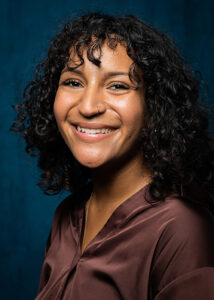
Radovanic’s inclusion in the cohort is particularly noteworthy given Millennium’s STEM-heavy focus. A senior psychology major with a minor in creative writing, Radovanic was more than just selected because of the impact of her poetry. She was personally requested by the Millennium Campus Network to open their welcome forum for all fellows in August with one of her poems.
Radovanic, whose project includes events “to hold space for those who are fighting to be heard,” read her work on the livestreamed opening forum.
“It’s just fantastic what she’s trying to do,” said Rushworth, who felt Radovanic’s inclusion would help FGCU’s application because of the quality, impact and diverse nature of her work. “We got to watch her read that poem. So did people across the world.”
To sustain its own presence in the Millennium Campus Network, FGCU is already working toward its application for 2022. With seniors compromising most of its current cohort, new applicants will have to be recruited and aided through the process.
To prepare a larger pool of potential applicants, Rushworth and Sinclair are developing a one-credit undergraduate class on the Millennium Fellowship.
That ultimately will help support the very idea at the heart of FGCU’s and the U.N.’s sustainability ideals: to carry on good works, near and far.
“We’ve got first-generation college students,” Rushworth said. “We’ve got different races and ethnicities. We’ve got international students. They’re able to use their own experiences and let that inform how they’re engaging with these projects as global citizens.
“We are a sustainable campus.”
